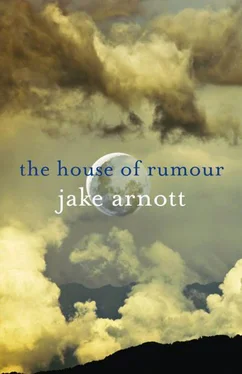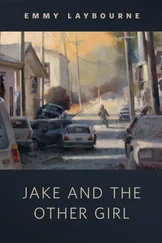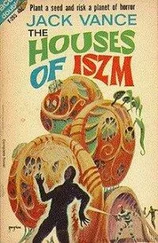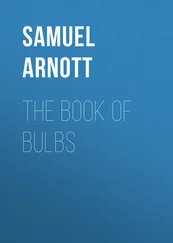And my own situation seemed ridiculous. I was hardly known in my own country, yet I was an artist with an international reputation. My work sold abroad for high prices, converted into a meagre peso allowance by the Cultural Property Fund. But I was happy enough with the moderate living I could make, hoping that my vocation as a sculptor could render some stability to my life. Then I won the lottery.
Nemo Carvajal laughed out loud when I told him the news. It had been he who had persuaded me to put my name forward in the raffle for American visas. The Lottery in Babylon! he exclaimed, naming the Borges story where all state activities, punishments as well as rewards, are dictated by a game of chance. I wasn’t sure whether or not to accept this peculiar act of fortune but he urged me to do so. A marvellous fantasy, he said; it proves that all is speculation. Then he caught my eye and in a more sombre tone whispered: you must go, you must find Lydia. And I knew he was right. It would mean saying goodbye to my family, but it also meant that I would be able to support them properly. When Nemo came to say goodbye he had a package with him. It was a manuscript that he wanted me to take to the United States. On the wrapping was the name Larry Zagorski and a Los Angeles address. I asked him about America and the time he had spent there but he did not have much to tell me. It’s a failed state, he sighed, like all states. Go. I will stay here. My friends, he murmured, his eyes rolling skyward, they know where to find me.
I arrived in Miami an alien — a frightening identity but a liberating one. It forced me out of introspection. I now had a sense of purpose and I needed to connect. I got in touch with the Transit Center for Cuban Refugees and other exile organisations. None had any record of Lydia Flores. I consoled myself that the documentation of those who had survived or had been lost was as yet incomplete and that, after all, she could be in Guantánamo. Hope and fear are very close companions. My new circumstances filled me with a tremendous energy and with that I went to work.
Using the many contacts I had accumulated in the art world, I found a studio and a gallery space more than willing to present my planned exhibition. I duplicated from memory all the models of the rafts I had made, adding sketches, notes, fragments of testimony. I put it all together quickly; my own urgency and an acceleration of outside interest in what I was doing gave the work momentum. The central piece was a reconstruction of Lydia’s Vostok 94 . But this was not to scale. For once I wanted to recreate the exact dimensions of my subject. Life-size, I found myself muttering, as if in prayer.
The show generated an immense amount of publicity, featuring in current affairs and opinion columns as well as in reviews and articles on cultural criticism. It became a talking point for debates on the function of art and on the discourse in international relations in a new world order. More importantly it became a place of contact and an information exchange for the recent Cuban exiles. But I was quietly determined not to become any kind of spokesperson. I relied on Tommy Bernstein, the affable, red-haired gallerist who so diligently curated my installation, to deal with the media coverage and requests for interviews. His Spanish was as rudimentary as my English but I found him easy to get along with and was relieved to have him as my protector.
I started to float in a kind of euphoric exhaustion. I found it hard to sleep. In the early hours, ghosts of the lost balseros would visit me, chanting their names, their stories, their innumerable tragedies. By day all the fresh opportunities that were now open to me as a successful artist, of course, offered no solace or peace of mind. The one personal outcome that I had sought from my exhibition remained elusive.
Then late one evening I received a frantic phone call from Tommy Bernstein. I was to meet him the next day at an address north of Miami Beach. His voice was agitated and I found it hard to follow all that he was saying, but he mentioned Lydia and Vostok 94 . Just one phrase stuck in my mind and reverberated with the shock of hope. I’ve found her, he told me.
That night Lydia Flores came to me in a dream. It was just her voice coming through the airwaves, crackling with deep-space static carrying a simple message: I’ve made it, don’t worry, I’ve made it.
Tommy Bernstein was waiting for me as I arrived at a gas station at Biscayne Point, our designated rendezvous. He smiled at me as I walked across the oil-stained forecourt, and I wondered what strange miracle of survival had brought me here. But when I asked him where Lydia was, his expression slackened and I realised there had been a terrible misunderstanding. I had learnt that English does not usually use gender in the naming of inanimate objects, but I was hopelessly ignorant of some notable exceptions: that ships and seagoing vessels are always given the feminine article. When he had said: I’ve found her, he didn’t mean Lydia but her raft, easily identifiable from the duplicate of it I had made. And there she was, the real Vostok 94 , lying outside the gas station restroom, having been found washed up on the shore earlier that week.
After months of waiting with no word, the discovery of Lydia’s craft was the closest I’d get to confirmation that she had been lost. I knew from conversations I’d had with members of the US Coast Guard that, after any rescue at sea, rafts would be burnt or sunk to avoid them becoming navigation hazards or false targets for other ships or helicopters. And in my delirious grief I felt that the meaning of my dream of Lydia that night was that she had made it in some other way. Into the outer space she had always longed for. I cannot think of her anywhere else but up there, somewhere in orbit above me.
I had to leave Miami and decided to give up my US citizenship. But I could not face going back to Havana. Besides the desperate sadness I felt, I found myself constantly being used in an argument I had no part of. Some claimed me in their attack on the iniquities of the Cuban Revolution, others to blame American imperialism and its economic blockade. I grew tired of insisting that I was a moderate. But I could no longer diminish the world with my art. My work had become a memorial and the number of those it commemorated continued to increase. I felt a growing sense of responsibility that I could not bear. I sought asylum from myself.
So I accepted the long-standing invitation of Gonçal Figueras and went to stay in Barcelona. And this is where I live now. I’ve managed to find some comfort in my work here, though nowadays it tends towards the abstract, despite the conceptual analysis that critics persist in applying to it. I try not to give in to disillusionment but to find the logical beauty of simple objects. But there are times when I feel completely alienated from the world and can no longer find any refuge in it.
Only last week I found myself in the Estació de França, on my way to Paris by train (I rarely fly now if I can help it). Passing through the ticket hall, I noticed that the model of the station was missing. I’d scarcely thought about the thing over the years. The glimmer of inspiration I had once felt before it had left little mark on my conscious memory, though it must have been deeply ingrained on my instincts. A brief regret for its absence gave way to something like relief: that I would be spared the inevitable disappointment when revisiting a moment of illumination. But then as I made my way to the train, I realised with dread that the maquette had been moved. It now stood near the entrance to the platforms and I could not stop myself looking once more into this miniscule abyss, though I knew that everything would be out of joint. The model of the model within the model was now in the wrong place. It is the carelessness of dislocation that so disturbs me and I am overcome by an incomprehensible weariness. No one knows (no one can know) the endless regression of loss and displacement.
Читать дальше











